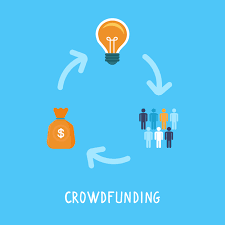
How Crowdfunding has influenced start-ups
You have a great idea that you would like to bring to the market. However, you have little to no capital in kick-starting product development. Furthermore, you don’t really have the business acumen and the research and development needed to make a solid business presentation to a group of investors.
So, how do you go about finding the seed funding you need to start turning your idea into a reality? Many entrepreneurs in recent years have turned to crowdfunding as a way to reach a large audience to fund product ideas and business models.
What Is Crowdfunding?
Crowdfunding is an alternative way for businesses, and especially start-ups, to source capital for a new venture from a number of people online, primarily through connecting investors and entrepreneurs on crowdfunding websites and social media.
This differs from traditional ways of collecting capital when entrepreneurs pitch a business plan to a limited number of wealthy businessmen or companies. Crowdfunding allows someone to pitch their business plan to a much larger pool of venture capitalists, instead of the traditional players.
How It Works
Crowdfunding websites such as Kickstarter and Indiegogo act as platforms for entrepreneurs to present their business ideas and products in front of a large audience of potential investors. These websites are then able to make a profit by taking a percentage of the funds raised for each idea.
An entrepreneur signs up to one of these websites to start a campaign, explain an idea or product, which is then spread mainly through social media platforms such as Facebook and Twitter to gain the attention of potential investors.
There is no limit to the types of products that can be presented on these crowdfunding platforms, with ideas ranging from an alternative to Apple’s smartwatch to a new potato salad recipe.
Types Of Crowdfunding
There are three types of crowdfunding: donation or reward, debt, and equity. In donation or reward crowdfunding, people chose to invest in an idea or a person without an expectation to receive anything tangible in return.
What they might receive in reward crowdfunding are acknowledgements in a book, free gifts, tickets to a concert and so on. Crowdfunding websites such as Kickstarter and Indiegogo fall under this category.
In debt crowdfunding, also known as peer-to-peer lending, investors can recoup their money with interest as with traditional investments. The only difference is that traditional lenders such as banks are not involved. Platforms such as Prosper, Funding Circle, and Lending Club offer debt crowdfunding.
Another category of crowdfunding is equity crowdfunding in which investors receive equity in return. Equity can come in the form of shares or a stake in the company, project, or venture. Similar to other forms of equity, the value of the company fluctuates depending on how successful it is. Examples of portals offering such services are OfferBoard, CircleUp, and OurCrowd.
To read more, please click on the link below…
Source: How Crowdfunding Has Influenced Start-Ups | HuffPost


